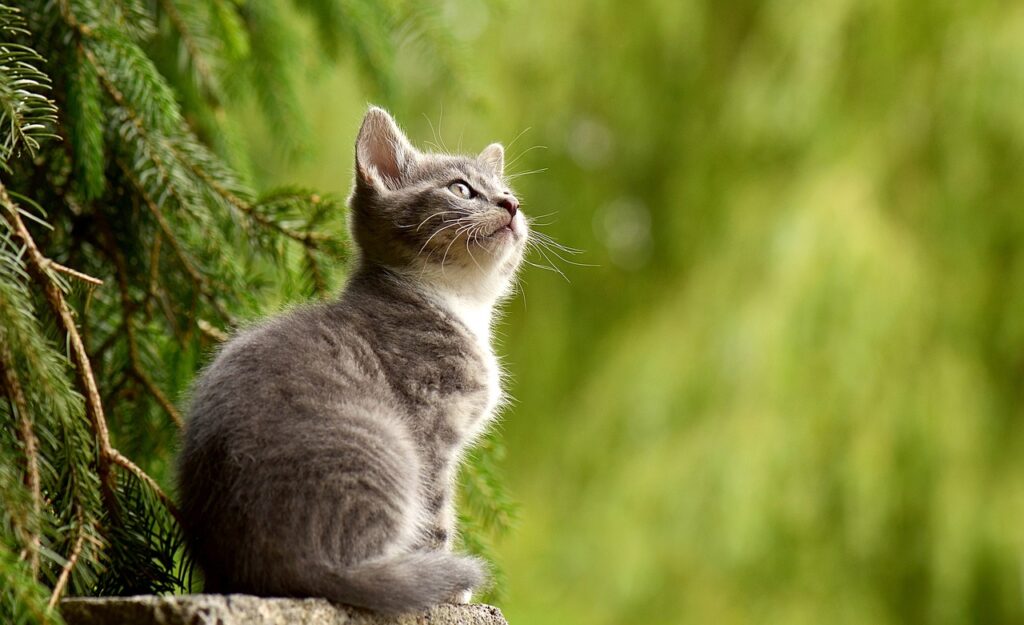Can Cats Eat Mayonnaise? – No, They can’t
For our feline friends’ safety, the answer is a firm No. Mayonnaise is a condiment typically made from egg yolks, oil, and vinegar or lemon juice. While these ingredients themselves are not toxic to cats, mayonnaise is high in fats, which can lead to obesity and other health issues in cats if consumed regularly. Also, some cats may have difficulty digesting dairy products often present in mayonnaise, potentially causing gastrointestinal upset. For these reasons, mayonnaise is not recommended for cats.
Can Kittens Eat Mayonnaise?
Like adult cats, kittens should also steer clear of mayonnaise. Being very young, their digestive systems are even more sensitive, and they require a carefully balanced diet to grow and develop properly. Introducing mayonnaise to a kitten’s diet can cause stomach discomfort and potentially disrupt their nutritional balance that’s so essential during their formative weeks and months.
Things to consider when feeding Mayonnaise to kittens?
Feeding mayonnaise to kittens can greatly increase the risk of developing digestive issues and unhealthy eating habits early on. The high fat content is unsuitable for their delicate digestive systems and does not provide the necessary nutrition a growing kitten needs. Hence, it’s best to avoid feeding mayonnaise to kittens altogether and focus on age-appropriate, nutrient-dense diets recommended by veterinarians.
Nutritional Benefits of Mayonnaise for Cats – Why Mayonnaise is not good for Cats
High Fat Content
Mayonnaise’s high fat content can lead to obesity and pancreatitis, a serious health issue for cats. The condition refers to inflammation of the pancreas and can cause vomiting, stomach pain, and other complications that could be life-threatening.
Lack of Beneficial Nutrients
Mayonnaise does not provide any necessary nutrients that benefit a cat’s health. Cats need protein, vitamins, and minerals, which mayonnaise does not supply in meaningful amounts.
Possible Gastrointestinal Upset
The rich and greasy nature of mayonnaise can cause gastrointestinal upset, including diarrhea and vomiting, particularly in cats with sensitive stomachs or intolerances to dairy products that might be present in mayonnaise.
Unhealthy Ingredients
Many commercial mayonnaises contain added sugars, salts, and preservatives, which do not align with a cat’s dietary needs and can contribute to health issues over time.
Risk of Foodborne Illness
Raw egg, a primary ingredient in mayonnaise, carries a risk of salmonella and other bacteria that can cause foodborne illnesses, which could be harmful to both cats and humans.
Potential Allergies: Can Cats Be Allergic to Mayonnaise?
While it’s not common for cats to be allergic to mayonnaise, it’s possible for them to be allergic to certain ingredients within it, like eggs. If a cat has an egg allergy, consuming mayonnaise could trigger a reaction.
Symptoms of Mayonnaise Allergies in Cats
- Skin Irritation: If a cat is allergic, they may develop rashes or hives after consuming mayonnaise-containing food.
- Gastrointestinal Issues: Symptoms like vomiting or diarrhea can indicate an allergic reaction or intolerance to mayonnaise.
- Difficulty Breathing: In severe cases, an allergic reaction can result in respiratory problems, although it’s uncommon.
What to Do If Your Cat Shows Symptoms?
- Consult a Veterinarian: Should your cat exhibit any unusual symptoms after ingesting mayonnaise, consult your vet immediately.
- Elimination Diet: To identify the allergen, your vet may recommend an elimination diet, removing mayonnaise from your cat’s food to see if symptoms persist.
- Immediate Care: In case of severe allergic reactions, seek urgent veterinary care to ensure your cat’s safety.
Recommended Amount: How Much Mayonnaise Can a Cat Consume?
Considering the health risks, it’s recommended that cats consume no mayonnaise due to its lack of nutritional value and potential health risks. Should your cat accidentally consume mayonnaise, monitor them for any signs of digestive discomfort or allergic reactions and seek veterinary advice if concerns arise.
Things to Consider When Feeding Mayonnaise to Cats
Given the risks associated with feeding mayonnaise to cats, such as obesity, pancreatitis, and gastrointestinal issues, it is best to avoid it altogether and provide your cat with a balanced diet formulated for their specific nutritional needs.
How to Feed Mayonnaise to Cats: A Quick Guide
Due to the aforementioned reasons, mayonnaise is not suitable for a cat’s diet. Instead of offering mayonnaise, which offers no health benefits, consider healthier alternatives such as small amounts of cooked, lean meats or commercial cat treats that are designed to be both delicious and nutritionally beneficial for your pet.
Healthy Treat Alternatives to Mayonnaise
Offer your cat some cooked chicken or turkey, which is high in protein and low in fat. Remember to cook the meat thoroughly and refrain from adding any oils, fats, or seasoning.
Commercial Cat Treats
Choose from a variety of commercially available cat treats that are specially formulated for feline health, keeping in mind to treat responsibly and not to exceed 10% of your cat’s daily caloric intake.
Cooked Fish
A small quantity of cooked fish can also serve as a treat. Fish is a good source of omega-3 fatty acids, which can contribute to a shiny coat and healthy skin. Make sure the fish is cooked and boneless.
Conclusion
In conclusion, while mayonnaise might be a staple in human diets, it is not a suitable food for our feline companions. Cats have specific dietary requirements and mayonnaise lacks the essential nutrients cats need. It’s important to adhere to a balanced, vet-recommended diet for your cat and to carefully consider any treats you may offer them.



